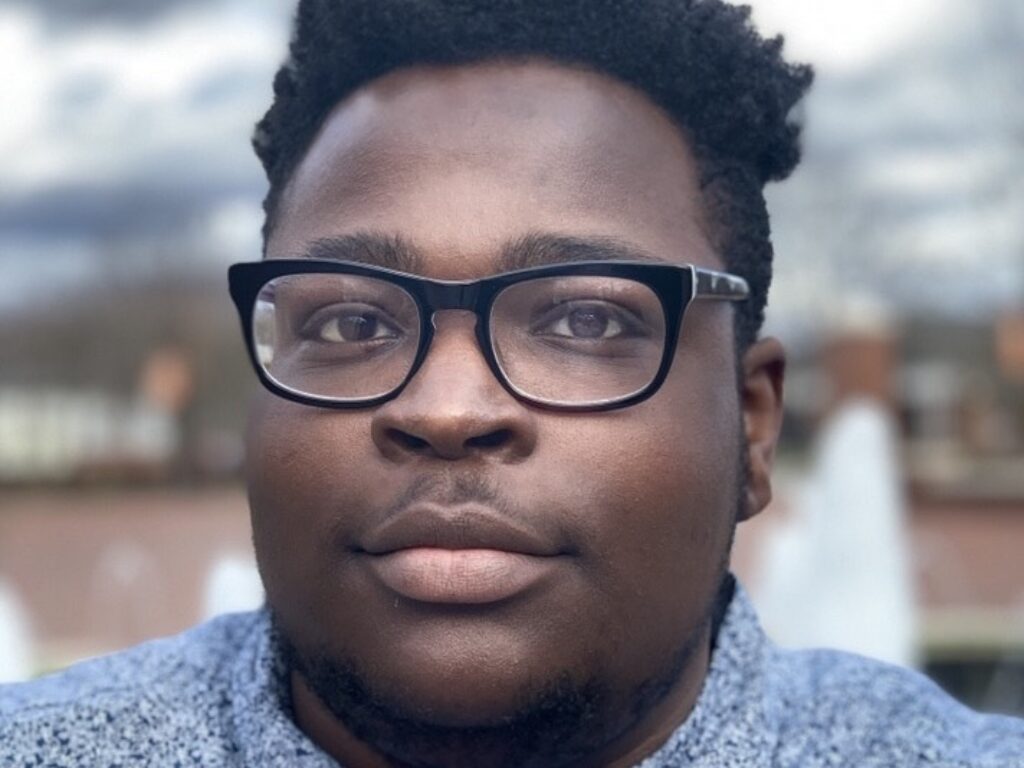#Campbell21 | Social Justice Club founder leaves a legacy

Donny Stewart, Jr. toured Campbell with his high school best friend and immediately fell in love with its family feel. Four years later, he hopes to leave campus an even more welcoming place than he found it.
The Criminal Justice, Pre-Law and Psychology graduate is headed to Wake Forest Law School next year. His dream job is in appellate advocacy, working on cases of wrongful conviction, or becoming a federal public defender. And the legacy he’s leaving on campus is an extension of his passion for justice — a student organization dedicated to campus diversity and issues of equality.
“Coming into Campbell, I didn’t see people who looked like me in every area of campus,” Stewart says, “And Campbell is working on that, but I wanted to help.” He quickly got involved when a likeminded friend started A Call to Impact Our Nation (A.C.T.I.O.N.), a student organization that strives to improve the relationship between police and community members. But Stewart had a different vision for a club — one that focused on activism and education. He founded the Campbell University Social Justice Club in early 2020.
Then, COVID-19 hit. Due to restrictions on in-person meetings and the administrative hassle of organizing a new club, it wasn’t until fall semester that Stewart was able to get the group off the ground. The student-run club is advised by Criminal Justice Instructor Dr. Marion T. Haley and has hosted forums, food drives, silent museum events and demonstrations, both virtually and in-person.
Looking back on the effort it took to start the Social Justice Club, Stewart believes knowing what it takes to get a movement off the ground will serve him well in his future career.
“My biggest takeaway is an understanding of how difficult but rewarding this work is,” Stewart says. “When you are president of the organization, regardless of how many great club members there are, at the end of the day you are the driving force and the responsibility is on you.”
Often, Stewart recalls feeling discouraged that club events weren’t received as well as he had hoped. “To me, our message shouldn’t be divisive, it should be universal, yet that isn’t always the case. You don’t realize how draining it is until you do it. But it’s something I really care about, and I will still fight for it no matter how much support it gets.”
Stewart is glad to have had some activism experience on a college campus before taking his ideas into the post-graduate world, and feels prepared for law school thanks to pre-law courses that challenged him. While his favorite courses were in psychology, a field that has always fascinated him, communication law was a close second. He describes the class as a primer for law school lectures, where professors call on students for on the spot answers and students need to know all of the reading.
His advice for students of all backgrounds is to “find your place and make your presence known.”
“Coming into school, when I experienced things that weren’t okay, I would sit back and let it happen,” he reflects. “As time went on, I realized that wasn’t helping anyone, and if I didn’t challenge others, nothing would change and no one would understand the impact of their actions. It’s about knowing who you are, and then living honestly.”
